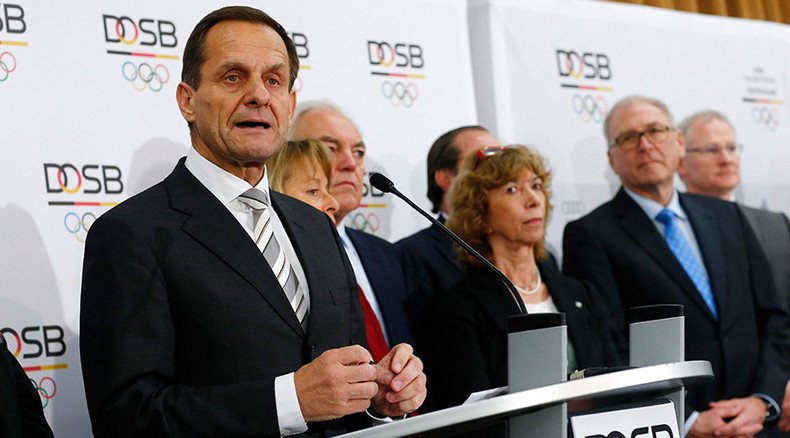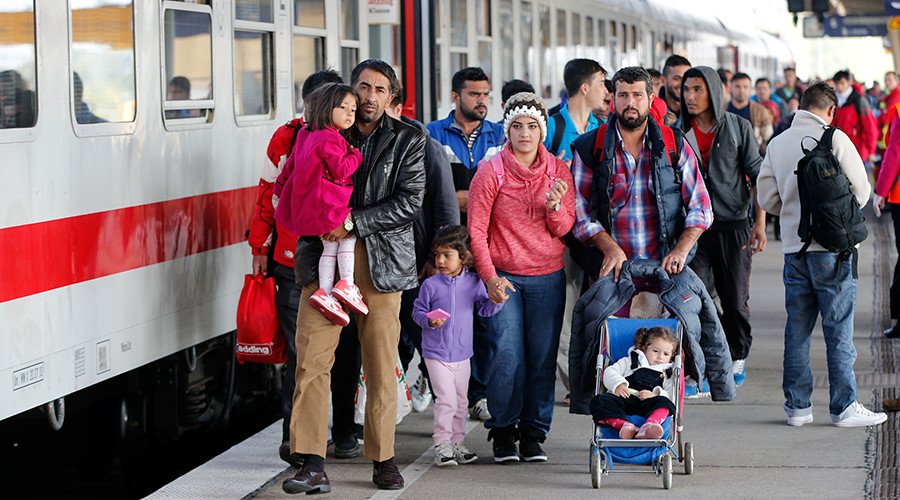‘German angst’ behind Hamburg's rejection of 2024 Olympic bid

Hamburg residents have voted against hosting the Olympics because of German angst; they are afraid of everything - expense, ecological threats and following the Paris attacks security concerns, says Hansjoerg Mueller from the Alternative for Germany party.
The majority of people in the German city of Hamburg voted Sunday to withdraw the city’s bid to host the Summer Olympic Games 2024. Almost 52 per cent of voters didn’t support the €7.4 billion project.
RT:Why did Hamburg residents say “no” to hosting the Games?
Hansjoerg Mueller: We have a bundle of reasons. We have some traditional reasons and we have some new reasons. The traditional reasons are the so-called German angst. Angst means people…are afraid of everything - it is a typical German tradition, because having the Olympic Games means to build a lot, to have huge expenses for sport locations. Germans [would prefer this money to be spent] maybe in the social sphere...There is also another traditional reason…Two years ago Munich also voted ‘no’ against the Olympic Winter Games in 2022, and this was more for ecological reasons, because nobody wanted to touch the environment and to change anything.... Now these reasons have become less important, and more important now is the security reason.
RT: You mentioned security reason. What do you mean by that?
HM: A year ago, Germany was a more or less calm country where you could go out during the night and nothing happened. Because of the influx of refugees this has changed and many people are more afraid now going out at night, even if nothing has happened – it is a psychological question.

RT:Was the decision to cancel the bid provoked by the Paris attacks on November 13?
HM: ... This has brought the ‘no’ vote. ‘No’ vote wasn’t very clear – it was nearly 49 per cent ‘yes’, and a little bit more than 51 per cent ‘no’. I think now the security question has become the decisive to get in the end a ‘no’ vote. But on the other hand, we have to admit that before the terrorist attacks in Paris… the voters of ‘yes’ had declined seven per cent last month. That is also true.
RT:Was there a certain change of public opinion in Germany after the Paris attacks?
HM: There is some kind of a not outspoken feeling that Germany will never be the country anymore we have lived in, because of the influx of refugees, the influx of foreign culture that tries to dominate us in our homeland. Many local people who seek shelter for German interests with German politicians do not get shelter from them. They feel [betrayed] by their own politicians who seem to support immigrants more than original Germans and this has already been a development during the last month or during the last year. And of course now it has been topped by the terrorist attacks in Paris, which even more boosts this feeling of being unsafe in one’s own country for an average German.
RT:The Games are 10 years away from now. Isn't it alarming that such radical decisions are being taken right now in this uneasy atmosphere?
HM: You are definitely right. The event that is 10 years away had been decided in today’s situation of fear. Nobody knows what will be in Germany in 10 years: will Germany even still exist in 10 years, or it will exist in another form in 10 years – nobody knows about it. This future is very far away...The German angst – to be afraid of everything – was the basis for a decision that was made today for the future, but it was made today under today’s circumstances, not under circumstances of the future.
The statements, views and opinions expressed in this column are solely those of the author and do not necessarily represent those of RT.












